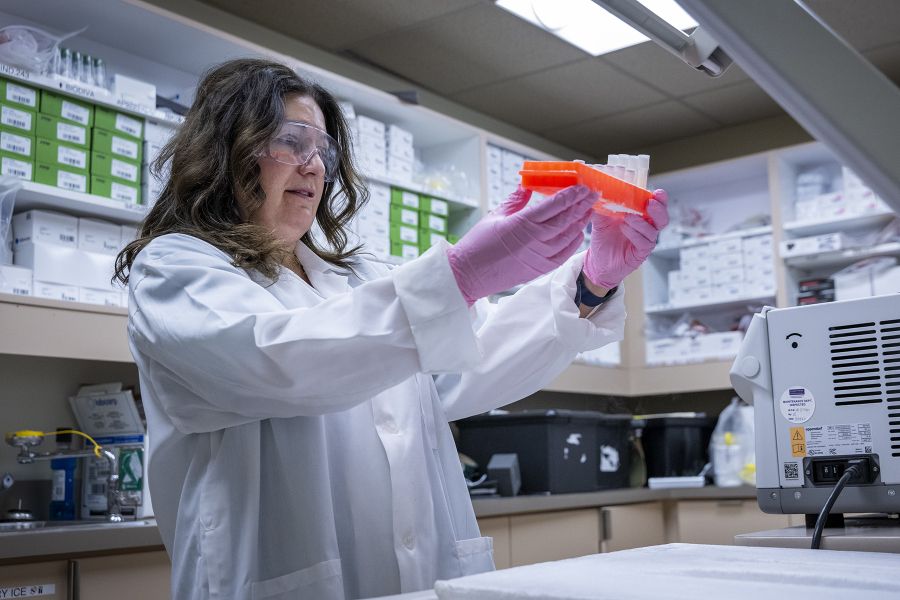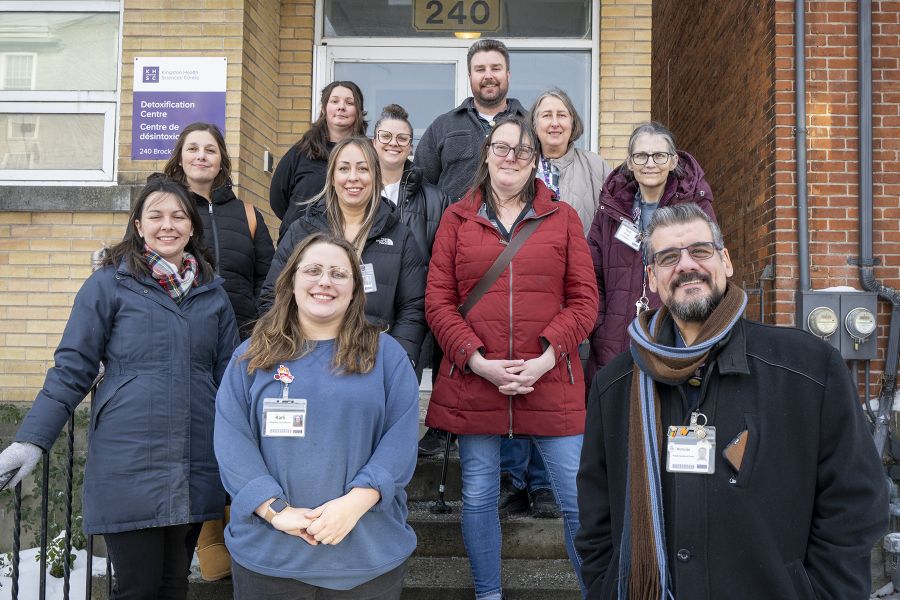Effective immediately masking is required for everyone when present on all inpatient units, in the Emergency Department (ED), the Urgent Care Centre (UCC), and the Children’s Outpatient Centre (COPC).
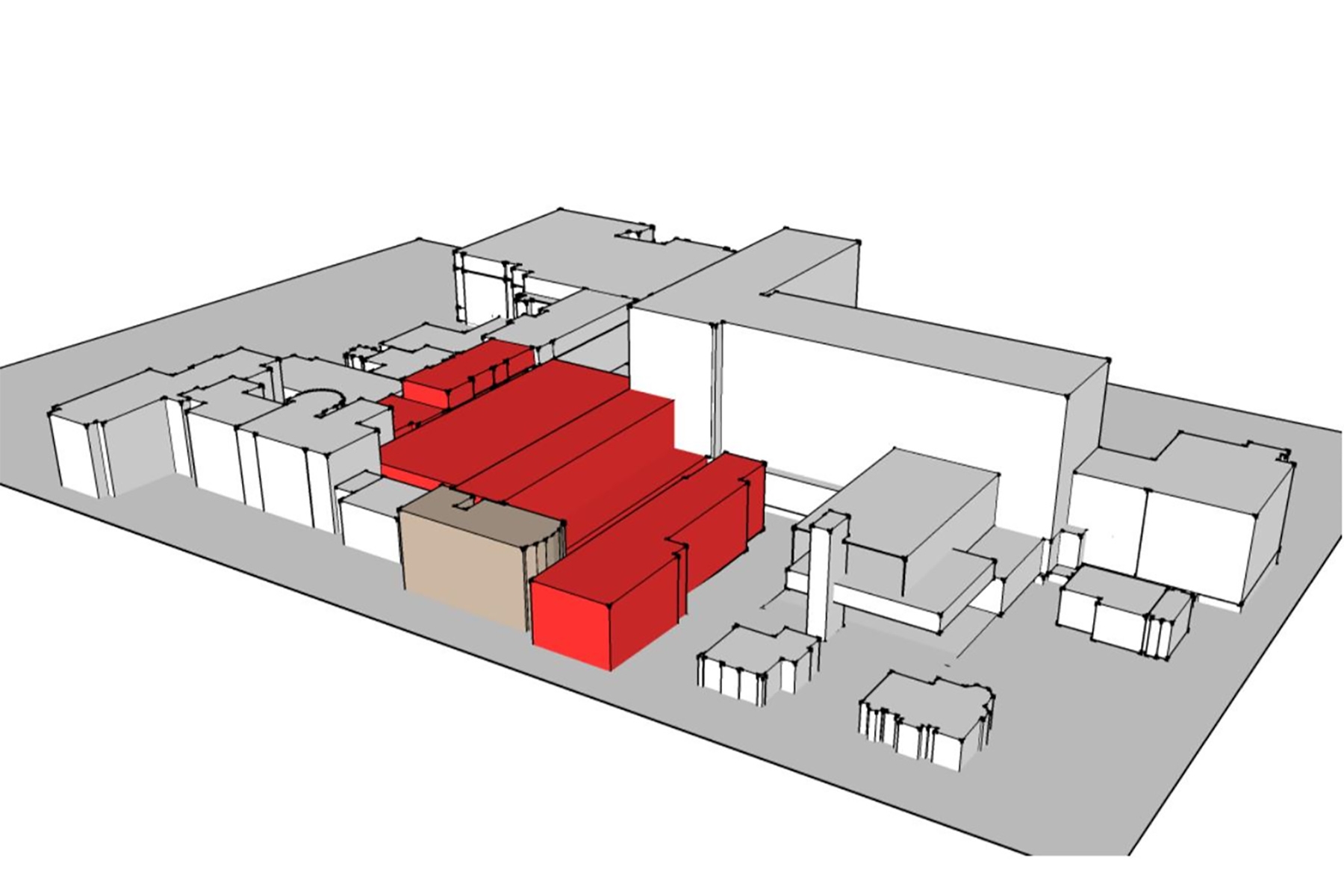
Over the past few years KGH has been busy making the case for another big redevelopment project, and thanks to a recent approval from the Ministry of Health and Long-Term Care, our planning work is about to kick into high gear.
Earlier this year, Minister of Health and Long-Term Care Dr. Eric Hoskins visited Kingston to announce a number of new funding initiatives for local hospitals. As part of that visit, he announced that KGH would receive extra funding to support the second stage of our Phase 2 redevelopment efforts.
“Everyone knows that KGH has some aging infrastructure and that we are working out of some buildings that have outlived their lifespan,” says Brenda Carter, Vice President and Executive Sponsor for the redevelopment project. “This is an exciting time as we will begin to plan for new, modern facilities that will allow us to meet the needs of our patients into the future.”
The project will be a big one as KGH prepares to tear down the Empire, Dietary and Douglas buildings, as well as Etherington Hall, and replace them with new spaces to house the Clinical Labs, Neonatal Intensive Care Unit, Labour and Delivery, Operating Rooms, Emergency Department and the Information Technology Data Centre.
KGH will now begin to create a functional plan, which will include detailed information and architectural drawings that will guide our work over the next several years. To do this, the redevelopment committee will begin talking to patients and families, staff and physicians in key areas of the hospital to understand what they need in these new spaces.
“Over the next few months our project team will be asking what type of rooms and spaces are required, what size they should be and how they should function,” says Carter. “Our goal is to really understand the needs in these areas so that we plan to create modern spaces that work for patients and staff.”
To help with all this, KGH has brought in facility planning firm Agnew Peckham. The company will lead our stakeholder engagement sessions and has been involved in similar redevelopment work at other Ontario hospitals, including recent projects in London, Mississauga and Vaughn.
“The information we gather during our sessions will be combined with projected patient volumes based on the demographics of our region to ensure we can meet our future patient needs,” says Carter.
That plan will then be sent back to the MOHLTC for approval. Before construction can begin there will be several other approval steps with the Ministry as we move through further design stages, which include the creation of working drawings. If all goes well, we could anticipate construction to begin as early as 2020.
Before the project is tendered, however, the Ministry must be satisfied that KGH will be able to meet its “local share” of the costs of redevelopment. This is typically 10 per cent of the cost of construction and 100 per cent of equipment for new facilities. Work is underway through the University Hospitals Kingston Foundation to ensure the local share of the project will be available in the next few years. For more information on the fundraising campaign, visit uhkf.ca.
Gallery
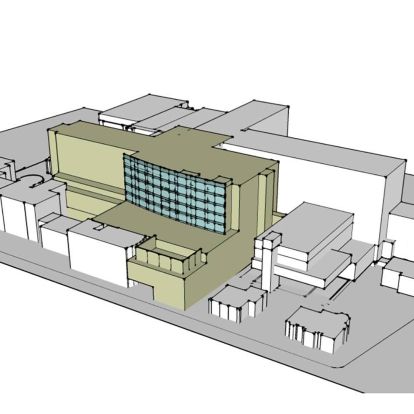
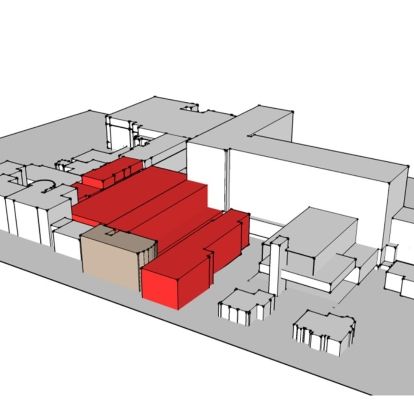
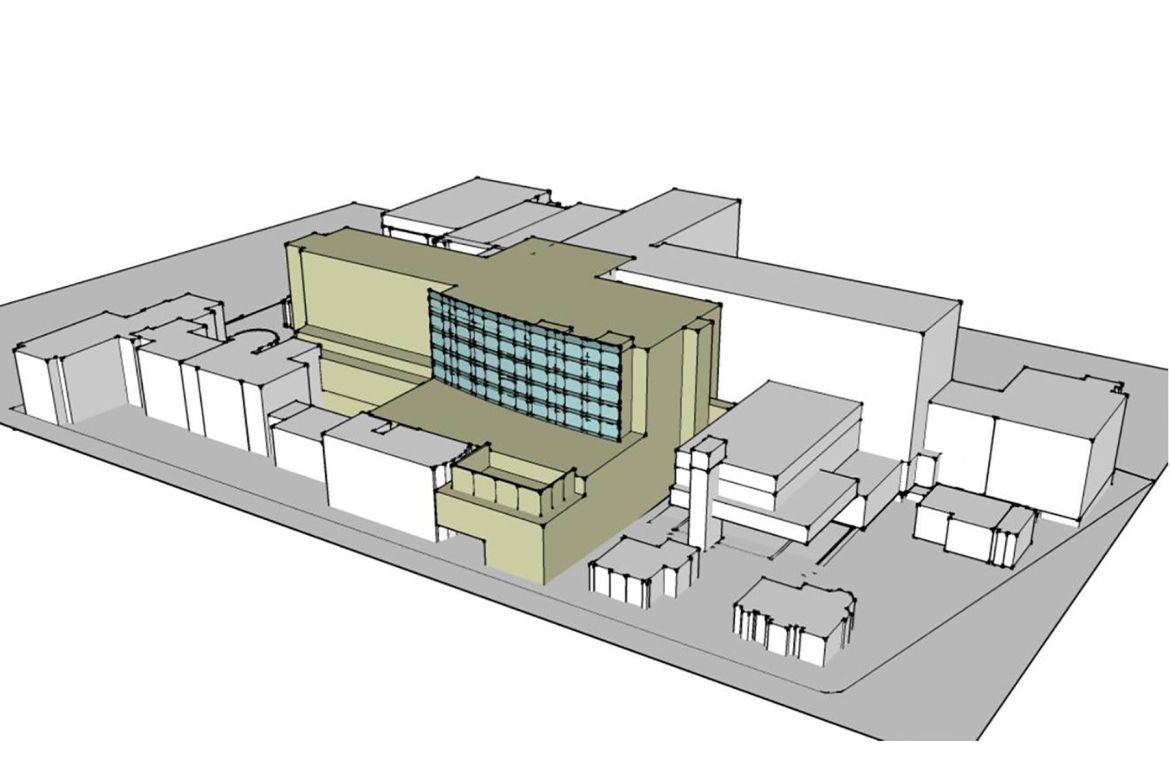
The new facility (in green) will include new Operating Rooms, Emergency Department, Neonatal Intensive Care Unit and more.
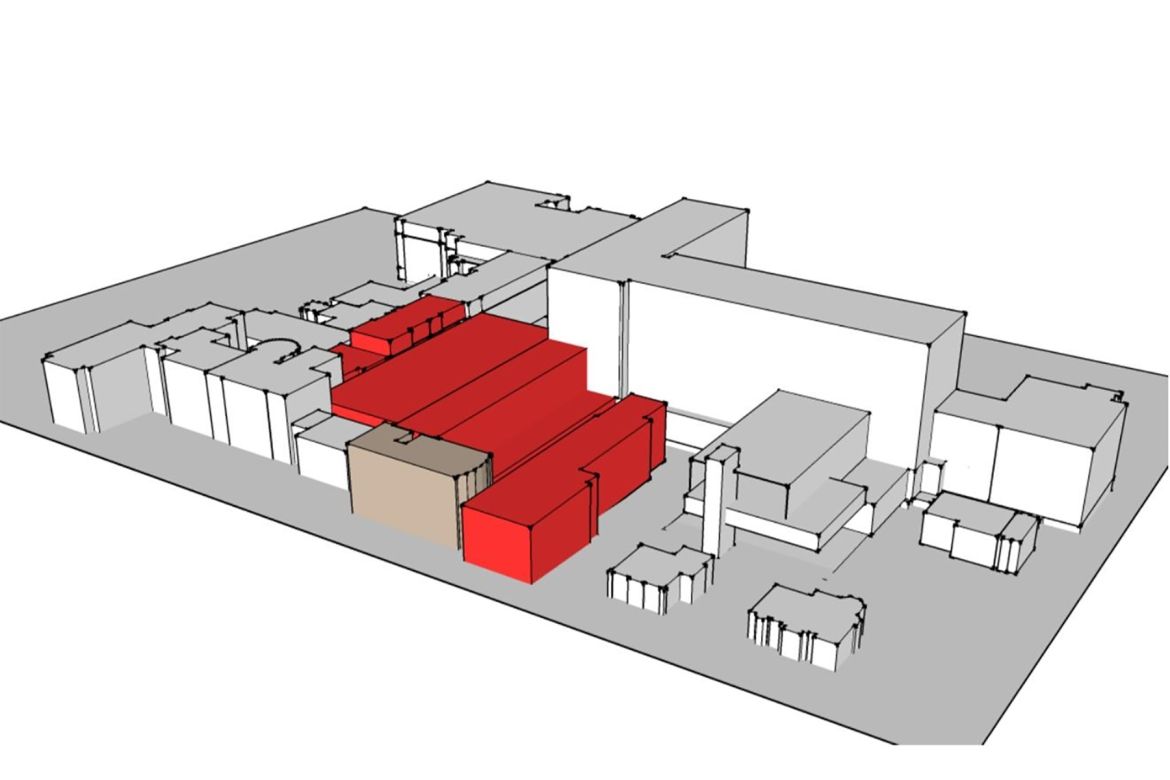
As part of the redevelopment project several existing buildings (in red) will be torn down to make way for a new facility.


